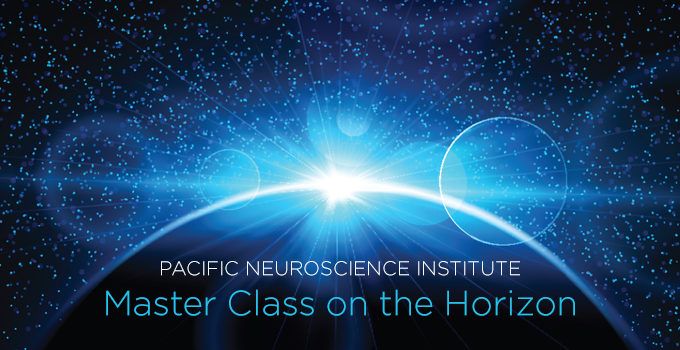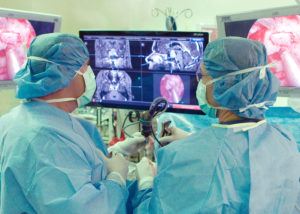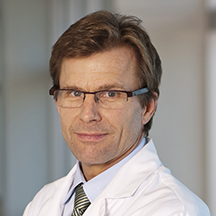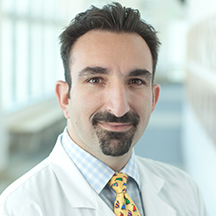

Announcing Hands-On Keyhole and Endoscopic Brain Surgery Course in January 2019
by Daniel F. Kelly
Pacific Neuroscience Institute & The Ohio State University Surgeons Host Master Class in Keyhole & Endoscopic Brain Surgery with National & International Faculty
Pacific Neuroscience Institute (PNI) neurosurgeons, otolaryngologists (ENTs) and neuro-ophthalmologists in collaboration with colleagues from The Ohio State University (OSU),will be hosting a hands-on microdissection course in advanced surgical techniques from January 24-27, 2019 in Santa Monica, CA.
An intense hands-on course in minimally invasive neurosurgery
Performing safe and effective surgery for patients with brain tumors, tumors of the skull base and pituitary tumors requires a dedicated and experienced team of specialists. Over the last two decades, minimally invasive approaches to reach these often difficult-to-access tumors have flourished largely due to advances in neuro-anatomical understanding as well as refinements in instrumentation including the high-definition endoscope, ultrasound and surgical navigation.

As a result of such progress, led by a number of national and international centers, the field of keyhole and endoscopic brain tumor surgery is an area for which more and more neurosurgeons, ENTs and neuro-ophthalmologists seek advanced training. Short, intense focused courses such as the one being offered by PNI and OSU allow surgeons to gain further “hands-on” exposure and expertise in the indications and use of these advanced techniques. These meetings ultimately help optimize outcomes and surgical safety for patients with the all types of brain tumors including meningiomas, glioblastomas, pituitary adenomas, schwannomas, craniopharyngiomas, chordomas and metastatic brain tumors.
“These courses are outstanding and helpful on so many levels for the attendees and faculty,” says Dr. Kelly. “We are able to teach our colleagues and participants how to refine their use of these techniques, and learn from each other through open discussions, sharing differing opinions on the optimal approach for specific tumor types and on complication avoidance techniques. The learning curve for performing keyhole and endoscopic brain and pituitary tumor surgery is long. These courses can help surgeons shorten that curve which ultimately is better for the patients.”
Experts lead the way
The course directors who include PNI neurosurgeons Drs. Daniel Kelly and Garni Barkhoudarian and Ohio State colleagues Drs. Daniel Prevedello (neurosurgeon) and Ricardo Carrau (ENT), have a long track record in use and refinement of these approaches and in the education and training of both neurosurgeons and ENTs. Joining them will be an “all-star” national and international faculty including Drs. Ivan El-Sayed (UCSF), Juan Fernandez-Miranda (Stanford University), Amin Kassam (Aurora Health Neuroscience), Kris Moe (University of Washington) and Charlie Teo (Centre for Minimally Invasive Neurosurgery, Sydney), as well as PNI Faculty including Drs. Achal Achrol, Pejman Cohan, Chester Griffiths, Howard Krauss, Santosh Kesari, Walavan Sivakumar and Robert Wollman.
 The course emphasis will be on patient and approach selection, surgical judgment, anatomical awareness, technical nuances, complication avoidance and maintaining quality of life. A team approach involving neurosurgery, otolaryngology and neuro-ophthalmology will be stressed as well as collaboration with allied subspecialists in neuro-oncology, endocrinology and radiation oncology.
The course emphasis will be on patient and approach selection, surgical judgment, anatomical awareness, technical nuances, complication avoidance and maintaining quality of life. A team approach involving neurosurgery, otolaryngology and neuro-ophthalmology will be stressed as well as collaboration with allied subspecialists in neuro-oncology, endocrinology and radiation oncology.
“Our course is uniquely geared towards the Pacific Rim international community and should help surgeons from these countries advance the skull base surgery care they offer their patients,” says Dr. Barkhoudarian, director of the JWCI and PNI Skull Base and Endoscopic Microdissection Laboratory. “The anatomy lab setting opens the door for our participants to push the envelope on surgical approaches that may be better for accessing the pathology – and ultimately safer for patients.”
A jam-packed line up awaits
 The course starts on January 24th with a live endoscopic endonasal surgery performed by Drs. Daniel Kelly and Chester Griffiths (ENT) which will be broadcast to participants from the Providence Saint John’s Health Center operating room to the PNI Clinic for open discussion and real-time teaching. The next 3 days will include a series of both lectures and hands-on cadaver microdissection devoted to specific approaches including the endoscopic endonasal route (via the nostrils), and several minimally invasive keyhole craniotomy approaches including the supraorbital eyebrow route, mini-pterional route, gravity-assisted transfalcine and transtentorial endoscopic approaches and the retromastoid (behind the ear) route.
The course starts on January 24th with a live endoscopic endonasal surgery performed by Drs. Daniel Kelly and Chester Griffiths (ENT) which will be broadcast to participants from the Providence Saint John’s Health Center operating room to the PNI Clinic for open discussion and real-time teaching. The next 3 days will include a series of both lectures and hands-on cadaver microdissection devoted to specific approaches including the endoscopic endonasal route (via the nostrils), and several minimally invasive keyhole craniotomy approaches including the supraorbital eyebrow route, mini-pterional route, gravity-assisted transfalcine and transtentorial endoscopic approaches and the retromastoid (behind the ear) route.
A track record of education and excellence
Although the PNI faculty have organized many such microdissection courses over the years, this will be the first such course they have held since aligning with Providence St. Joseph Health in 2017 and since opening their new PNI Clinic which offers a multidisciplinary team approach for patients with brain, skull base and pituitary tumors. The course is made possible in part by the PNI Foundation and essential support from industry sponsors.
This course is organized by Pat Fitzwater of Academic Event Management and has been planned in accordance with the Essential Areas and policies of the Accreditation Council for Continuing Medical Education (ACCME) through the joint providership of CME Outfitters, LLC and Academic Event Management. CME Outfitters, LLC designates this live activity for a maximum of 25.75 AMA PRA Category 1 Credits™.
Investing in your skills to enhance your medical practice
Surgeons are invited to participate in this exciting and leading-edge course.
Register here or call Pat Fitzwater at 805-300-9154
Detailed course description
Find out more about Pacific Neuroscience Institute in the Fall 2018 issue of PNI Magazine.

Daniel F. Kelly, MD, is the Director of the Pacific Neuroscience Institute in Santa Monica, CA. Considered to be one of the top neurosurgeons in the US, Dr. Kelly is internationally recognized in the field of minimally invasive keyhole surgery for brain, pituitary and skull base tumors. He continues to focus his efforts on advancing innovative treatments for patients, providing fellowship training in minimally invasive neurosurgery, and patient education and support.

Garni Barkhoudarian, MD, is a neurosurgeon with a focus on skull base and minimally invasive endoscopic surgery. He has particular interest and expertise in pituitary and parasellar tumors, brain tumors, skull-base tumors, intra-ventricular brain tumors, colloid cysts, trigeminal neuralgia and other vascular compression syndromes. He is an investigator in a number of clinical trials evaluating the efficacy of various medical or chemotherapies for pituitary tumors and malignant brain tumors. For virtually all tumors and intracranial procedures, Dr. Barkhoudarian applies the keyhole concept of minimizing collateral damage to the brain and its supporting structures using advanced neuroimaging and neuro-navigation techniques along with endoscopy to improve targeting and lesion visualization.
About the Author

Daniel F. Kelly
Daniel F. Kelly, MD, is the Director of the Pacific Brain Tumor and Pituitary Disorders Centers at Providence Saint John’s Health Center in Santa Monica, CA. Considered to be one of the top neurosurgeons in the U.S., Dr. Kelly is internationally recognized in the field of minimally invasive keyhole surgery for brain, pituitary and skull base tumors. He continues to focus his efforts on advancing innovative treatments for patients, providing fellowship training in minimally invasive neurosurgery, and patient education and support.
Last updated: July 30th, 2019